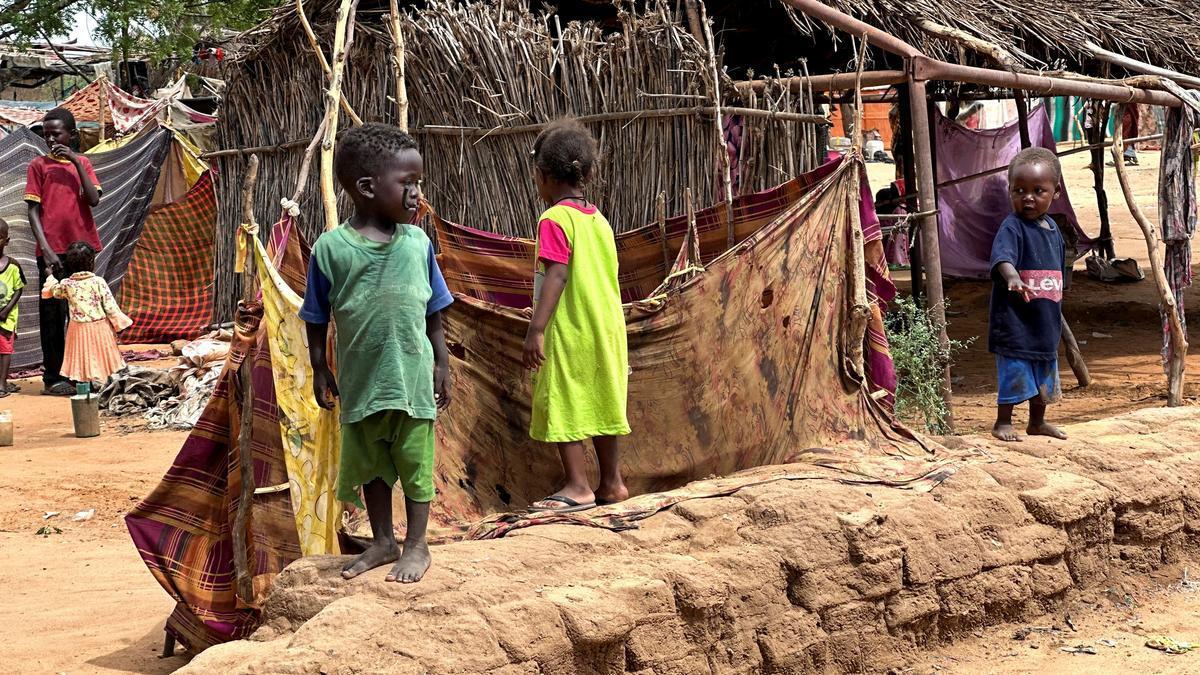Africa-Press – South-Sudan. The Integrated Food Security Phase Classification (IPC) reports that 2.3 million children in South Sudan are at risk of acute malnutrition between April and July. This is an increase from the 2.1 million reported earlier this year.
The report highlights a worsening hunger situation in Upper Nile State, where fighting has intensified recently.
The IPC states that people in 11 out of 13 counties in Upper Nile are facing emergency levels of hunger.
It warns that Nasir and Ulang counties could face famine if the situation continues to worsen.
According to the report, intense fighting and aerial attacks that started in March have forced thousands to flee their homes.
These clashes have destroyed farms and affected humanitarian work in the areas.
As a result, more than 32,000 people in Upper Nile are now facing the most severe level of hunger, which is more than three times what was predicted earlier.
The report noted that other parts of the country, which have remained peaceful, have seen small improvements in food security due to better harvests and continued support from aid agencies.
However, the general situation remains serious, with about 7.7 million people, or 57 percent of the population, affected by hunger.
Commenting on the report, Meshack Malo, the Country Representative of the Food and Agriculture Organization, warned against further conflict.
“South Sudan cannot afford to sink into conflict at this point in time. It will plunge already vulnerable communities into severe food insecurity, leading to widespread hunger as farmers will be prevented from working on their land,” he said.
The report says 66 percent—or 1.04 million people—in Upper Nile are facing Crisis (IPC Phase 3), Emergency (IPC Phase 4), or Catastrophic (IPC Phase 5) hunger levels.
Mary-Ellen McGroarty, the Country Director for the World Food Programme, also commented on the report, saying the impact of conflict leaves communities vulnerable and destroys their ability to produce food.
“Once again, we are seeing the devastating impact conflict has on food security in South Sudan. Conflict doesn’t just destroy homes and livelihoods; it tears communities apart, cuts off access to markets, and sends food prices spiralling upward,” she said.
She stressed the importance of restoring peace and allowing humanitarian access to reach communities with much-needed support.
“Long-term peace is essential, but right now, it is critical our teams are able to access and safely distribute food to families caught in conflict in Upper Nile to bring them back from the brink and prevent famine,” she added.
The worsening food crisis is also being made worse by a cholera outbreak.
Noala Skinner, UNICEF’s Country Representative in South Sudan, says an additional 200,000 children are facing the risk of malnutrition.
“These latest projections place a further 200,000 young children at high risk of malnutrition. The ongoing challenges with access in some of the most affected areas, as well as health and nutrition site closures, reduce the chances of early intervention and treatment. The cholera outbreak has added to an already difficult situation, putting young lives in a precarious fight for survival. Now more than ever, we need continuity and scale-up of services for prevention and treatment of malnutrition,” she said.
Aid agencies say urgent action is needed to prevent the situation in Upper Nile from becoming worse. They warn that time is running out for thousands of families who are now on the edge of catastrophe.
Source: Eye Radio
For More News And Analysis About South-Sudan Follow Africa-Press






